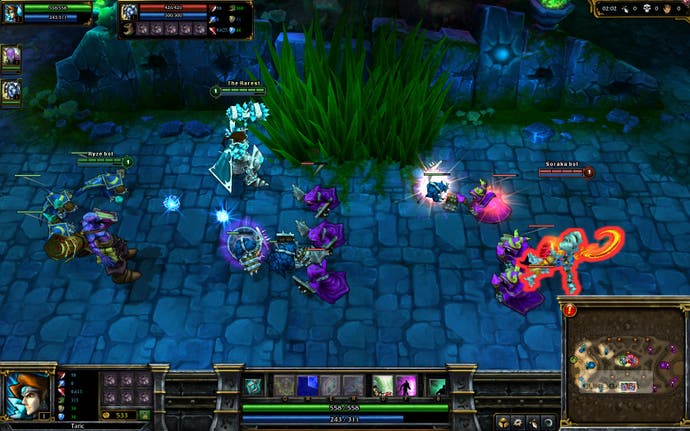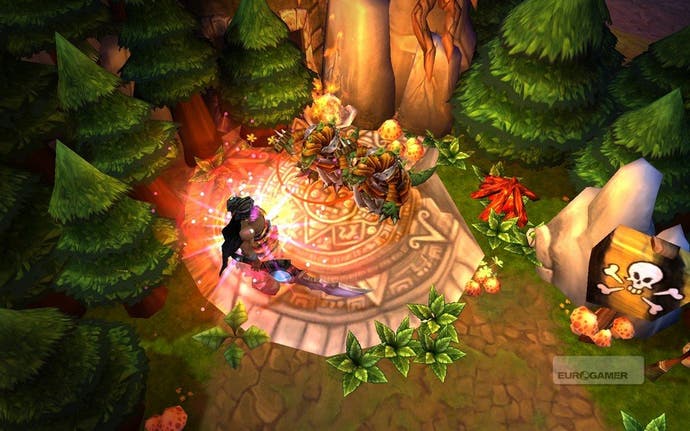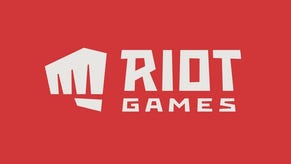League of Legends
The tower defence rests.
"Carrots?" I ask the phone pinned between my head and my shoulder. I'm not sure what it means. It's annoying, having a phone cradled on your shoulder and telling you things when you're trying to play League of Legends.
The voice in the phone (my friend?) repeats that the only thing she needs (a woman!) for our stir-fry tonight is carrots. Stir-fry! Of course! We'd arranged to meet for dinner tonight. I should have already left the house, but the online match I'd signed up for was dragging on.
This was about six hours ago. So, League of Legends clearly passes the first test of any addictive, free online game, the greasy business of managing to hypnotise you utterly and take fat bites out of your free time. The question became whether it would pass the second test - whether I would abandon my team by dropping out of the game to head out the door, or tell my friend I'd be late and keep playing.
I hesitated. If I quit I'd lose all the XP and IP for the match, and most likely my four team-mates would lose half of theirs as, outnumbered, they suffered a defeat. It was raining out. And, y'know, carrots...

League of Legends is the first of several games in development (including the upcoming Heroes of Newerth and whatever it is Valve's cooking up) to have a crack at turning the Defence of the Ancients Warcraft III mod into a standalone product. Actually, Demigod was technically the first, but I'm not sure anybody cares about Demigod any more so let's move on.
Here's how Defence of the Ancients works: It's like a tower defence game, except instead of one player building any towers (which are already in place) two teams of 2-5 players micromanage heroes in a Diablo stylee, inamongst the cannon-fodder "minions" which both team's bases continually spawn.
The emphasis is on levelling up your heroes as fast as possible by killing enemy minions and heroes, all while launching assaults on enemy towers and, ultimately, the enemy base. Eventually one team will have knocked down enough defences to clear a path to the 'Ancient' in the enemy base, and if they destroy the Ancient too they're declared the winners. Dry to describe, but tense and completely riveting to play.

League of Legends takes this framework and does its best to refine it. The big addition it makes is the Summoner System, a persistent frontend for the game that makes DOTA more than just a competitive game. It pulls the setting back a bit. That hero you're controlling? Well, you now have a Summoner who brought him into the world, and every match you play whether you win or lose you gain XP for your Summoner.
Level up your Summoner and you unlock different spells you can cast within matches, as well as Mastery Points that can be spent advancing along three different skill trees, which all buff your hero and spells, and finally Rune slots in which you can place Runes. Runes can provide any minor buff you can imagine and are purchased with Influence Points, which you also gain for winning matches (still with me?).









